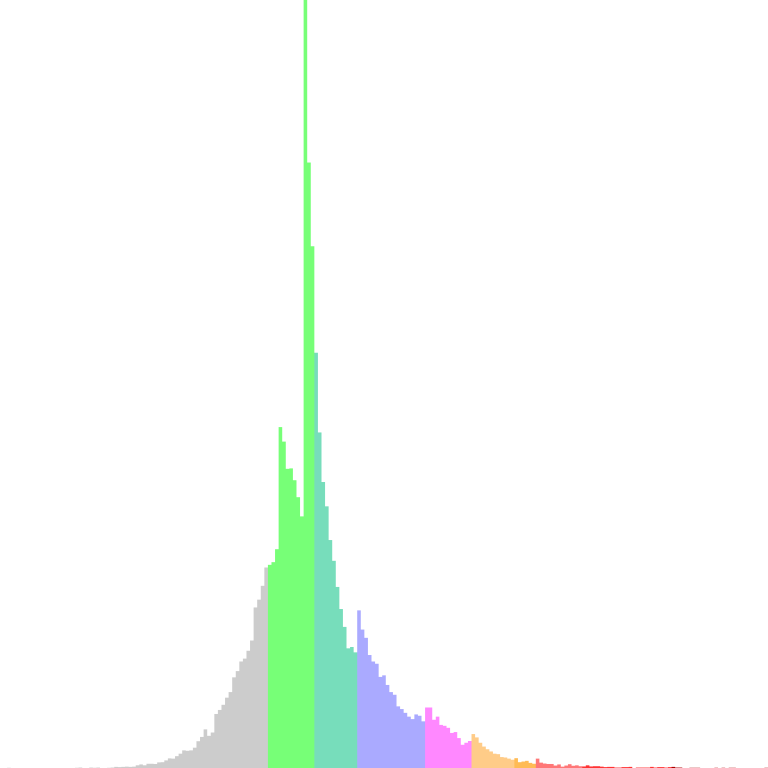Rating distribution of codeforces users was interesting for me. The rating of each user is availible on the codeforces website, so I just go to 'Rating' tab download all the pages and parse them.

The picture is actual for 21.08.2018
May be this is interesting not only for me.










How about a rating distribution chart by country? Lol. I am already predicting the culprit of the green color's dominance in cf.
Most likely, most of the group of 1200-1600 people who participated once, and then just left the code, or at first go to the div 1, then merge to 1300-1500.
It would be much more interesting if you did some follow-up analysis (e.g. compare to some known distributions) or gave additional observations (e.g. the first column of a colour is always higher than the last column of the previous colour if and only if the rating boundary between those colours is above the rating of new users).
I guess the first column of a color is always higher than the last column of the previous color for experts and onward is because most of the users in that area have just changed colors for the first time maybe, and still feel like they're in the transition phase, so they decide to stay away from rated rounds for a while (and enjoy the new color maybe? :P). Hence their numbers accumulate.
That would be my hypothesis, too. This would mean that this phenomenon would not be observable if one only considers participants who competed recently.
I agree with you that passive users can be the reason of 'new color phenomenon'.
But let's compare it with topcoder's distribution, especialy for algorithm compititions (they are most similar with codeforces's rounds). If we look at topcoder's rating distribution there is no 'new color phenomenon'. Topcoder's rating distribution contains more coders and topcoder's rated events are not so popular (codeforces rounds somtimes have about 9000 competitors). I mean that topcoder's rating distribution contains more passive users, but it doesn't have 'new color phenomenon'. So i guess that the main reason is diffirence in rating scheme.
There is one signifitian difference in topcoder's rating scheme and codeforces's rating scheme, and I think that this is a codeforces's issue. In topcoders's srm you can't be unrated if you open any problem and it is beter to solve 1 problem than to solve 0 problems. In codeforces it is sometimes beter to solve no problems than solve one or two problem. In codeforces you can read problems and than deside to be unrated. For example you can predict that if you have no idea how to solve C, D etc, you will defenitely loose you rating — just do not solve anything. Is is some kind of 'dirty game' :( but this is the chance for such passive users. And temptation is more when you are closer to color change.